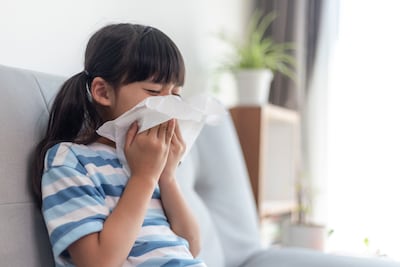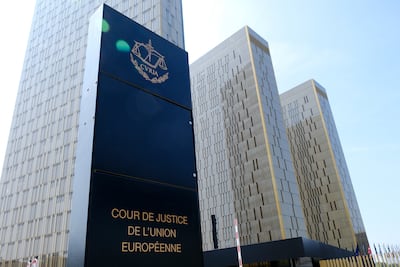HBW Insight speaks to ex-Perrigo ESG expert Steve Ramus about the state of sustainability in consumer health and where we might be heading in the near future. Part one of two.
While it's not clear that it will, if the tech bubble bursts, innovation and investment in consumer health could slow, according to Euromonitor 's Magda Starula. Meanwhile, climate change is reshaping allergy and respiratory needs, creating opportunities for industry.
Only taking inflation into account, the European Commission’s new cost estimate of between €1.48bn to €1.8bn per year, when adjusted for inflation, results in a total very similar to the original €1.2bn estimate.
While no doubt welcome, yet another delay to the EU Deforestation Law and suggestion for another review next year could mean a “never-ending” regulatory exercise that creates uncertainty for manufacturers selling products containing or having been made using materials like palm oil, soya and wood.
“It’s not good enough just to provide products anymore, we need to create a service and a holistic approach to products,” argued Bayer Consumer Health's Northern Europe general manager, Mike Knowland, speaking at a recent panel event in the UK Parliament.
EU legislation aimed at controlling at source emerging pollutants such commonly used OTC analgesics like ibuprofen and diclofenac and “forever chemicals” like perfluoroalkyl and polyfluoroalkyl substances (PFAS) edges closer to adoption.
A recent public consultation by the European Parliament’s Committee on Public Health (SANT) shows dissatisfaction with how women’s specific health needs are being met in the EU.
With climate change increasing the prevalence of allergic rhinitis across the world, especially in children stuck in badly ventilated classrooms, experts in a Bayer-funded paper stress the need for further education of healthcare professionals and access to good OTC solutions.
Karo says adding MTick certification to selected products helps menopausal women “make confident, informed choices when they need it most” and also represents a “significant business opportunity.”
Haleon, Colgate-Palmolive and other manufacturers have changed the way they manufacturer toothpaste tubes to be sold in the UK so they can be all be technically recycled.
Pharma Deutschland has joined France’s President, Emmanuel Macron, and Germany’s Chancellor, Friedrich Merz, in calling for the revised Urban Wastewater Treatment Directive to be included in the European Union’s Omnibus regulatory simplification program.
In part 2 of HBW Insight's interview with PA Consulting's personalization and consumer expert, Rhea Patten, we discuss whether sustainability should still be a priority for consumer health companies big and small.
Updating wastewater treatment facilities in Germany will cost almost three times more than the German Association of Local Public Utilities (VKU) has predicted, according to a Pharma Deutschland analysis.
“Today’s consumers, especially younger generations, are redefining personal care as preventive care,” argues Kenvue on the basis of its latest research into global consumer trends.
A series of research papers recently published by the Global Self-Care Federation indicate that industry will need to be pragmatic about alternatives to PVC in medicine blister packs.
HBW Insight speaks to Kenvue's global head of sustainability, Jennifer Duran, about the company's “Healthy Lives Mission,” including insights into how the firm is decarbonizing its supply chain, reducing the use of plastics and embedding sustainability into the design of new products.
AESGP has formally submitted a request to the General Court of the European Union to intervene in the European Federation of Pharmaceutical Industries and Association’s legal action against the revised EU Urban Wastewater Directive.
What's going on with the EU Green Claims Directive? HBW Insight speaks to the European Commission, Parliament and Council to find out why trilogue negotiations seem to have stalled.
“For us, regulation is the floor, not the ceiling,” Opella's chief sustainability officer Marissa Saretsky tells HBW Insight as the firm gains B Corp Certification. Other topics covered in this exclusive interview include Opella's position on the revised Urban Wastewater Treatment Directive.
The Urban Wastewater Treatment Directive “in its current form, is at an end,” insists Pharma Deutschland CEO Jörg Wieczorek. To put the directive to bed once and for all, the association has applied for leave to intervene in the ongoing EU legal battle in its own right.




















